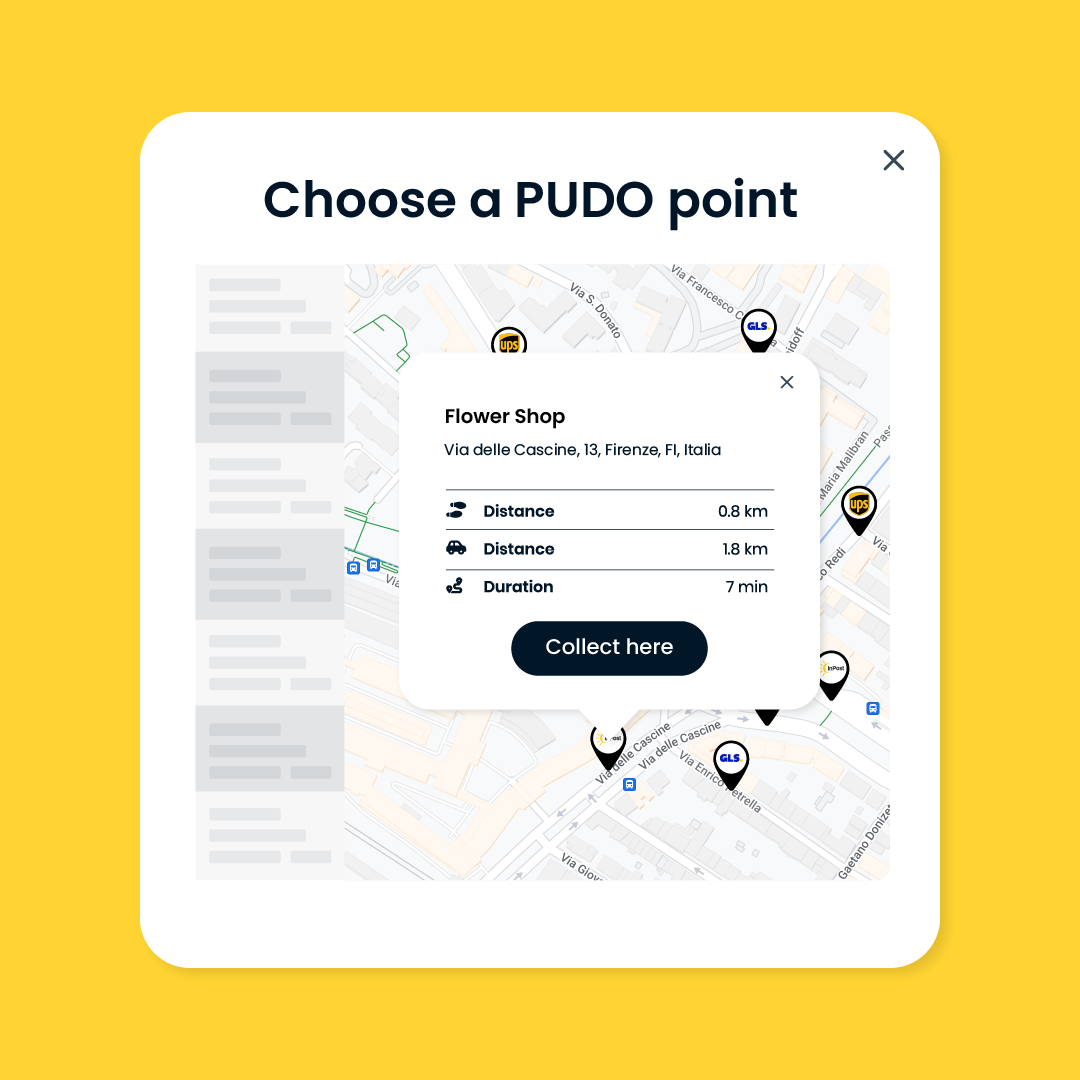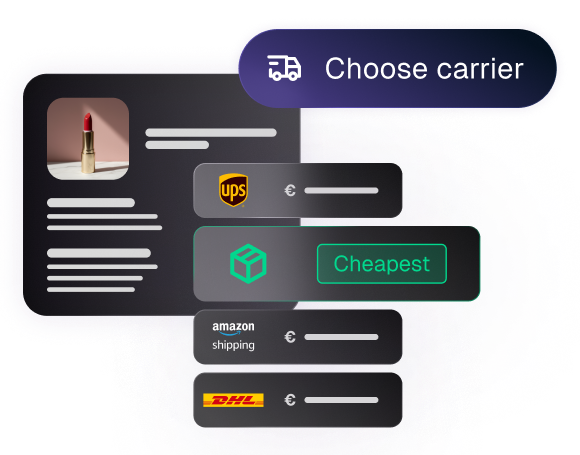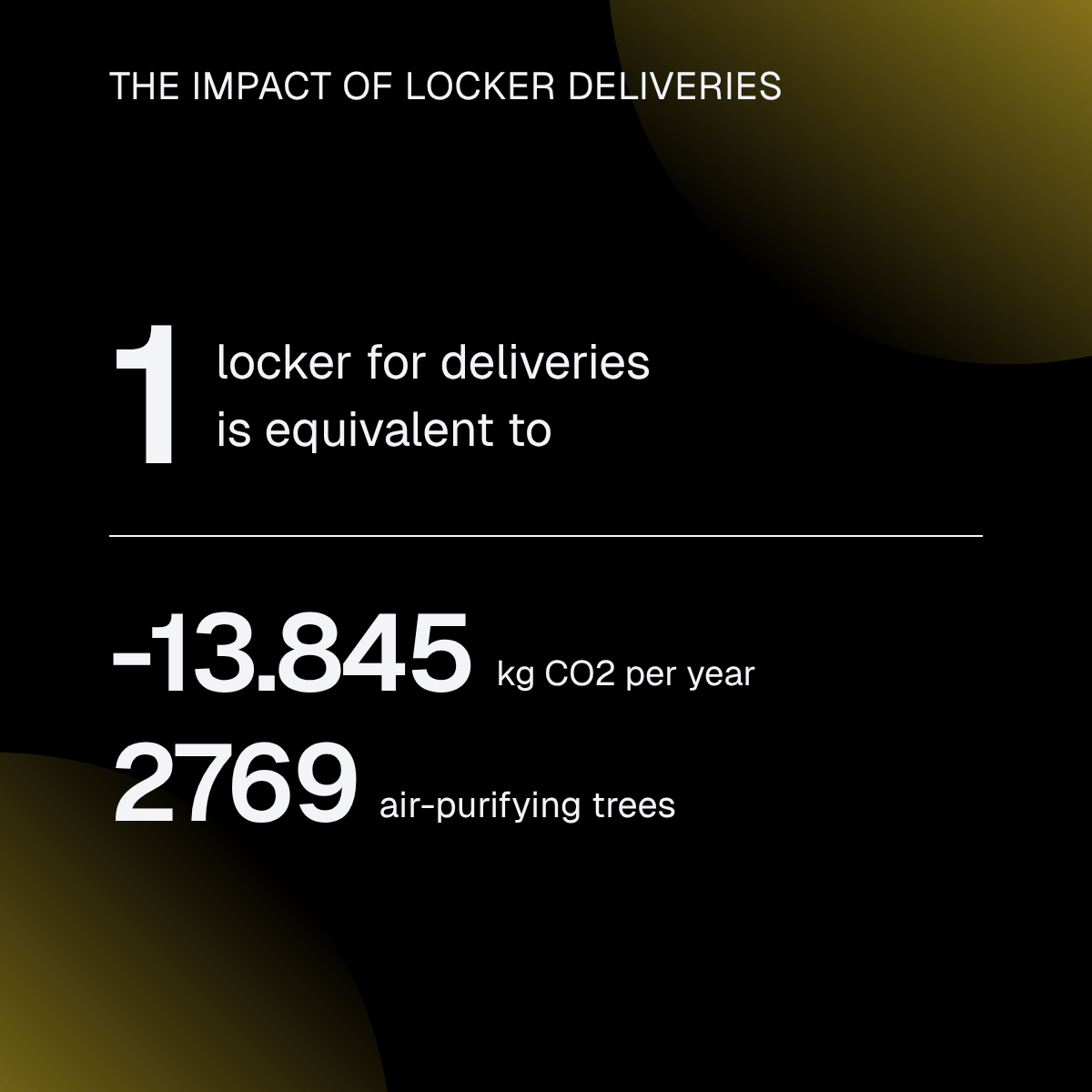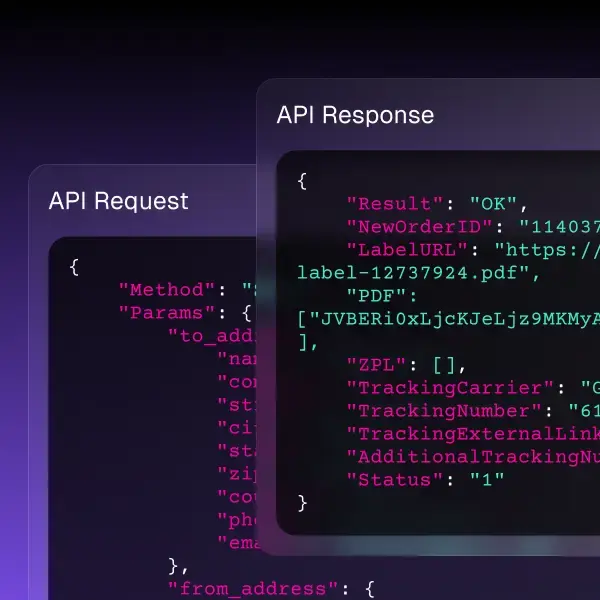Out-of-Home Delivery and other delivery options
Learn more about the world of delivery and return options to increase conversions at checkout.
What is Out-of-Home?
Enter the world of home deliveries with an introduction guide.
Delivery options
Dai locker ai parcel shop: tutte le opzioni di consegna e reso degli ordini.
Out-of-Home Pros
Costi più bassi, flessibilità di orari, meno emissioni... scopri tutti i pro.
Sustainability
Qual è l'impatto delle spedizioni Out of Home sulle emissioni di CO2?
FAQs: Out-of-Home
Tutto quello che vuoi sapere sulle consegne fuori casa.
Statistics
Dati e tendenze principali sull’impatto dell’automazione nella supply chain.
Scopri di più →

Out-of-Home deliveries refer to all shipments that are not delivered directly to the recipient’s home, but instead to an external collection point such as an automated locker, a PUDO (Pick Up Drop Off) point, a partner shop, or an authorised retailer.
This model represents an evolution of the traditional home delivery approach, responding to the growing need among consumers to manage delivery times and locations autonomously.
While home delivery focuses on the convenience of receiving parcels “at home”, Out-of-Home delivery offers flexibility, control, and sustainability, reducing failed delivery attempts and optimising the overall logistics flow.

Delivery options are now one of the key elements of the online shopping experience.
Home Delivery
This is the most traditional method: the courier delivers the parcel to the specified address. It offers convenience but can lead to failed delivery attempts and higher last-mile costs.
Out-of-Home Delivery
Allows customers to collect or return their parcels at partner locations or automated lockers, reducing delivery times and increasing flexibility and choice.
Out-of-Home Delivery Options
All available types
Self-service collection points available 24 hours a day, ideal for those who want to collect their parcels with total flexibility and privacy without having to depend on shop opening hours.
The only major limitation of locker delivery is the size of the parcel, which cannot exceed the dimensions of the locker.
Source: DHL 2025
Networks of partner shops such as supermarkets which act as logistics hubs for deliveries and returns. Collection and delivery at these points is subject to opening hours and parcel size.
Source: DHL 2025
Option to collect orders directly from the brand's point of sale, combining e-commerce and physical retail.
Perfect for bringing people directly into the physical shop.
Source: ShopFully; Offerista, 2024
Affiliated locations managed by logistics operators or couriers to expand the collection network (e.g. UPS Access Points).
Source: DHL 2025
Source: DHL 2025
By consolidating multiple shipments to a single collection point, couriers reduce the distance travelled and optimise delivery routes, directly impacting last-mile costs and delivery times.
This model also helps to:
-
Reduce failed delivery attempts, one of the main causes of logistical inefficiency.
-
Simplify returns management, thanks to Drop-Off points.
-
Increase customer satisfaction by offering more collection options and greater autonomy.
-
Strengthen brand perception as environmentally conscious and innovative.
Out of Home deliveries therefore become a key driver for improving profit margins and customer loyalty.

For online shoppers, Out-of-Home means freedom of choice.
Customers decide where and when to collect their order, without having to adapt to the courier’s delivery schedule.
The main benefits include:
-
Flexibility, thanks to lockers and PUDO points accessible at any time.
-
Convenience, with collection points located in high-traffic areas such as supermarkets or stations.
-
Greater transparency, through real-time tracking and instant collection options.
-
Sustainability, as consolidated deliveries reduce emissions and urban traffic.
The Out-of-Home model makes delivery more convenient, faster, and more sustainable, enhancing both the shopping experience and brand perception.

By consolidating shipments and reducing courier movements, Out of Home delivery stands out as one of the key solutions for more sustainable urban logistics.
Unlike traditional home delivery, which requires a separate route for each individual order, Out of Home delivery makes it possible to group multiple shipments into a single collection point.
This approach significantly reduces CO₂ emissions, fuel consumption, and urban traffic congestion.
The model follows a “hub & spoke” logic: goods are directed to central nodes (lockers or PUDO points), where customers can collect them independently.
The result is fewer vehicles on the road, shorter routes, and a more efficient management of the last mile.
Out-of-Home Statistics
You can find more data and trends in our 2026 report.










